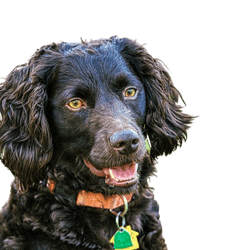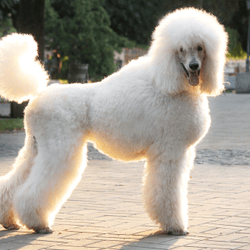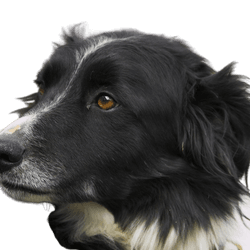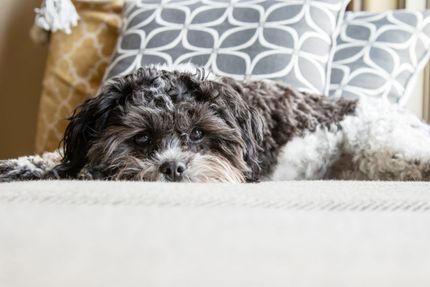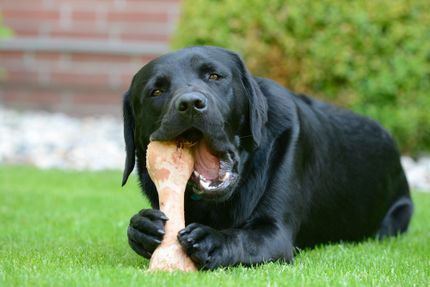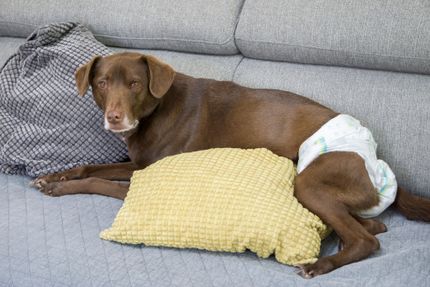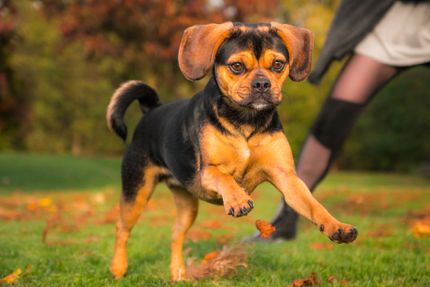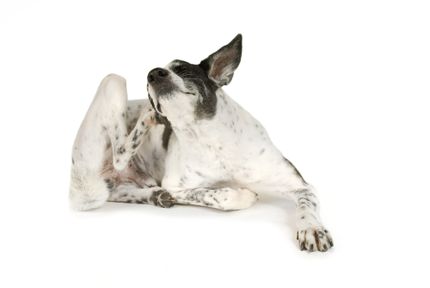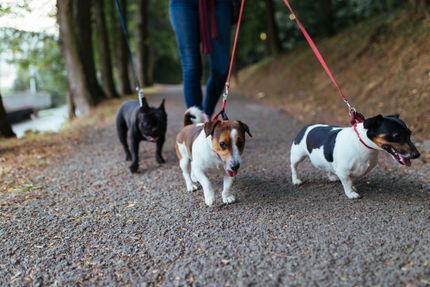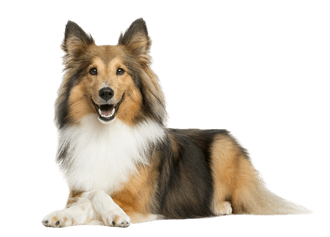
Shetland Sheepdog Breed description: Character & Co
Shetland Sheepdog
Facts & Origin
What is the origin of the Sheltie?
The Shetland Sheepdog originates in the Shetland Islands. To improve the herding qualities of their small Spitz-like dogs, the local farmers crossed them with Border Collies. The Shetland Sheepdog inherited robustness and weather resistance from the Greenland dogs the whalers brought with them. According to old stories, the King Charles Spaniel was also involved in the creation of the Shetland Sheepdog. In order to refine the dogs and to further improve the qualities of the Shetland Sheepdog, long-haired Collies were later crossed in.
Until the middle of the 19th century there was no uniform appearance, dogs were bred purely for performance.
The British Kennel Club recognised the breed in 1914. In 1954, the Shetland Sheepdog was recognised as a breed by the FCI. It is listed there in Group 1, Section 1, with Standard Number 88.
What are the breed characteristics of the Sheltie?
The Sheltie was bred purely as a working dog. It had to be robust, flexible, agile and nimble in order to fulfill its tasks as a herding dog. As a yard- and guard dog it reliably announced strangers by barking loudly.
- Today it is hardly used as a herding dog anymore, it rather has become
- a lively family dog,
- sports- and
- companion dog.
A Sheltie may look like a miniature Collie at first sight, but this is not the case. The character of this little bundle of energy is very different from the Collie. They are physically and mentally smarter, more agile than its big counterpart. This is proven by the many Shelties who successfully do Agility. Also in other sports like Obedience Training, flyball, Dog Dancing or Discdogging you will meet many Shelties and their owners. A Sheltie wants to work, it wants to be physically and mentally stimulated. A Sheltie is a great dog, only one thing it is certainly not: a lap dog that wants to spend its life between sofa and feeding bowl. If you want to buy a Shetland Sheepdog, you should enjoy exercise.
The Sheltie is not a list dog.
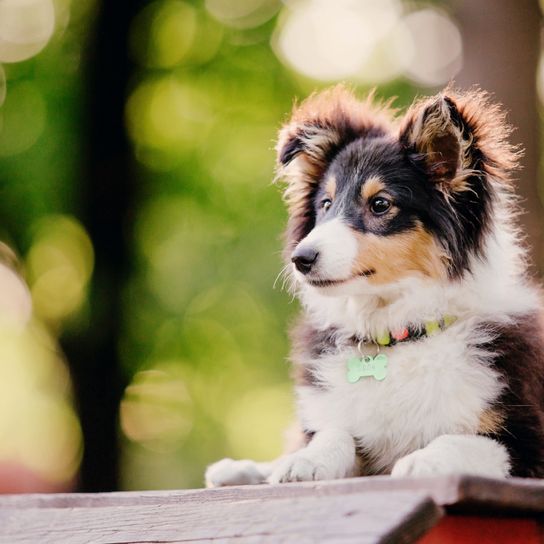
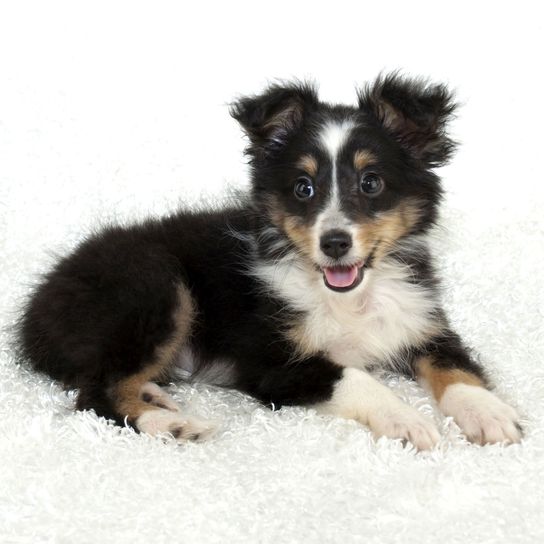
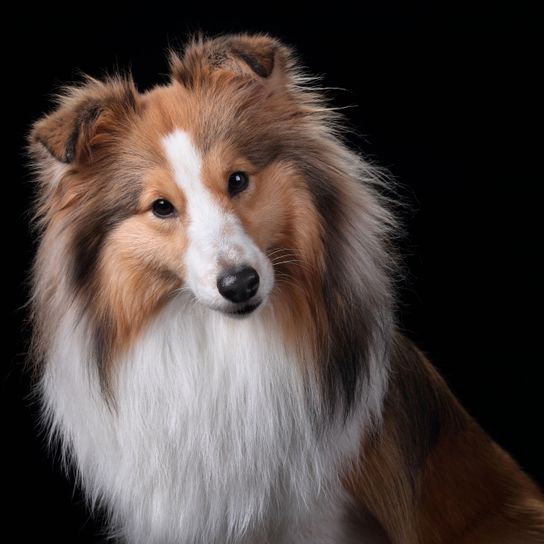
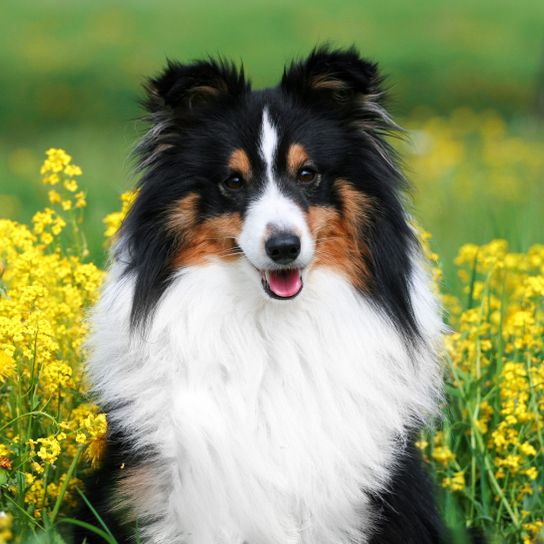
| Alternate Name | Sheltie, Shetland Sheepdog (Sheltie) |
| Origin | Scotland |
| Life expectancy | 12 - 13 years |
| Care requirements | high-maintenance |
| Activity level | high |
| FCI group | Sheepdogs |
| AKC group | Herding Group |
| KC group | Pastoral Group |
Shetland Sheepdog mixes
Attitude, character and temperament of the breed
What are typical character traits of the Sheltie?
- intelligent
- affectionate
- alert
- sensitive
- full of energy
- willing to learn
- attached
A Sheltie is a faithful companion that always wants to be close to its owner. They do not like to be left alone. They get on well with children.
A Sheltie approaches other dogs in a friendly way, but does not necessarily seek out their contact. Their two-legged friend is more important to them. They do however accept other dogs or other animals in the same household.
If a Sheltie wants to communicate with you, they do it by loudly barking. This is how they announce strangers which they otherwise approach in a reserved manner. In general, a Sheltie is suspicious of anything that is new to them, but at the same time it would never act aggressively. Try to get your Sheltie puppy familiar to as many situations as possible. With a good Sheltie breeder the little ones will have already started to get socialised.
Your Sheltie is a robust, spirited companion, that is however very sensitive. They do not tolerate loud, unrestrained behaviour at all. You should train your Shetland Sheepdog puppy in a loving, sensitive and at the same time consistent way. This dog has such a disposition that comes with a huge amount of eagerness to learn and work. The fun that a Sheltie has with learning and moving will inspire you an owner too. Long walks or practice hours on a training ground are a necessity for the Sheltie. With their quick way of picking up on things they are always looking out for new challenges. A Sheltie is easy to train, it is suitable for beginners.
Shelties hardly have a hunting instinct, walks without putting them on a leash are possible without any problems given the have had appropriate training beforehand. For example whistle training.
If you want to buy a Sheltie, you will end up with a loyal friend and companion for any life situation. If a puppy from a breeder is too expensive for you, have a look at 'Shelties in Not' (Shelties in Need), maybe your new friend is already waiting for you there.
Character
Usage
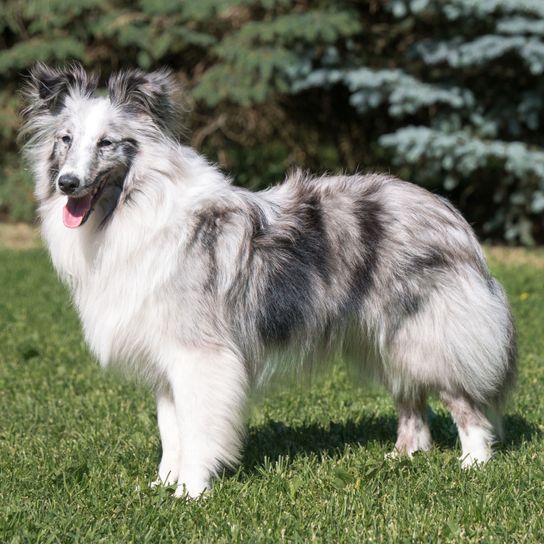
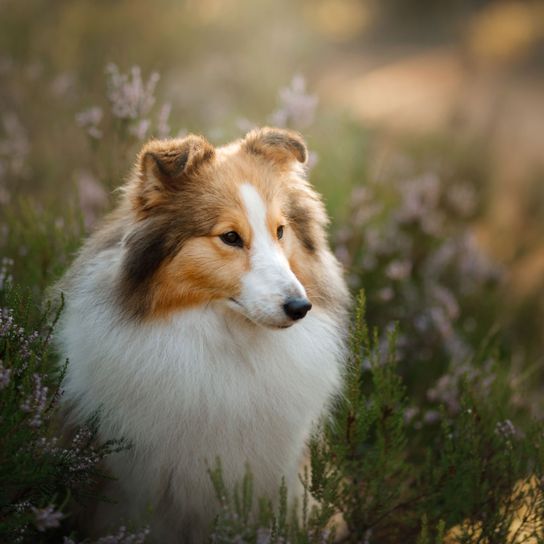
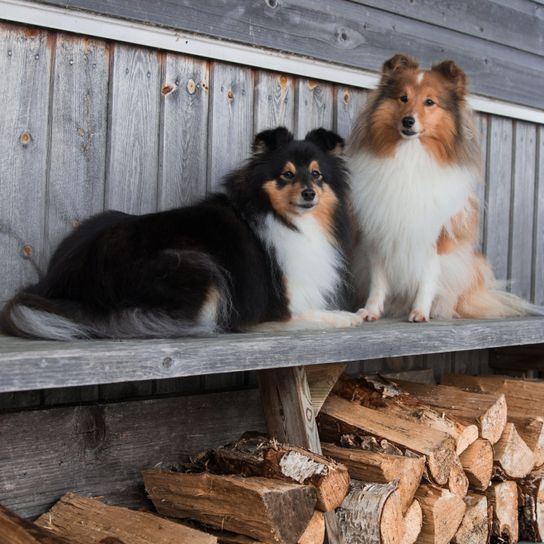
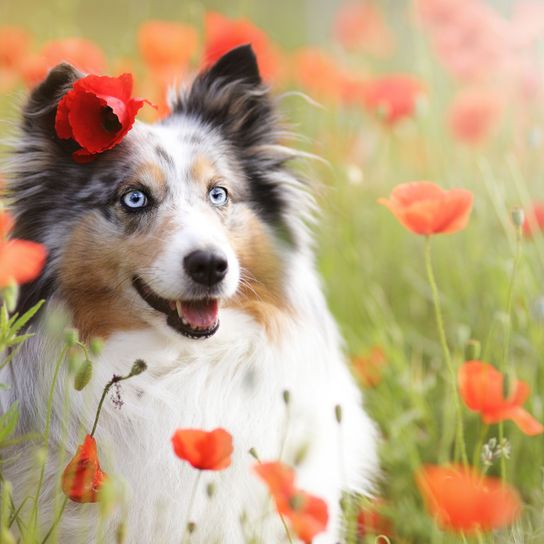

Health and breeding information
What are typical diseases of the Old Shetland Sheepdog?
- Dermatomyositis
- MDR1 defect
- Collie Eye Anomaly
What is to be considered in regards to Sheltie breeding?
Sheltie breeders must prove that their dogs are healthy. This includes a HD X-ray examination, proof of MDR1 status and an eye examination.
Afterwards, the dogs are licensed. An expert evaluates the external appearance of the dog. They check whether the animal meets the breed standard.
Blue merle dogs must not be mated with each other. Their offspring can often have malformations of the eyes, or become blind or deaf.


Appearance and coat of the Sheltie
Shelties are elegant little dogs with a thick mane and a ruff. They can vary in size. There are many dogs that are either larger or smaller than the breed standard requires. They are slender, the coat on their distinctively looking head is short.
Following colours are possible:
- sable-white/sable
- dark sable-white
- tri-colour
- black and white
- blue merle
White markings as a kind of blaze, on the ruff and chest, as well as on the legs and tip of the tail are desired for all colours.
The top coat is long, straight and hard. Together with the soft, thick undercoat, it offers the dog protection against wetness and cold.
The Sheltie's fur hardly gets matted and does not accumulate dirt. You don't need to do any extensive grooming, brushing them twice a week is sufficient. Only during the change of coat you should brush them more often.
What is the average size of a Sheltie?
Males grow 33 to 41 cm tall, bitches 33 to 39 cm.
How much does a Sheltie weigh?
Males weigh between 6 and 10 kg, bitches between 6 and 9 kg.
What is the average life expectancy of a Sheltie?
A Sheltie lives 12 to 14 years.
| Fur length | long |
| Fur | flat coated |
| Ear shape | Tilt-ear |
| Tail | fanned out |
| Anatomy | sporty |
| Size ♀ | 33 - 41 cm |
| Weight ♀ | 6 - 12 kg |
| Size ♂ | 33 - 41 cm |
| Weight ♂ | 6 - 12 kg |
| Suitable For | - |
Colors

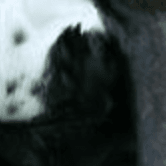
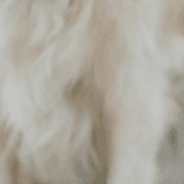
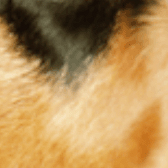
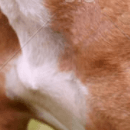


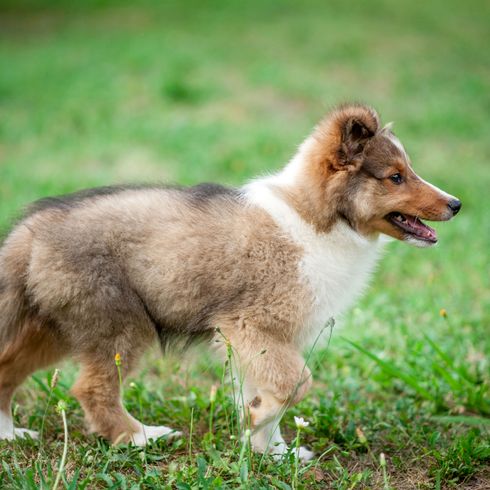
Known Diseases
Eye diseases
Often occur with allergies and intolerances.
MDR1 defect
The MDR1 defect is a defect in the MDR1 gene that can occur in some breeds of dogs and in humans. This results in the deficient or absent synthesis of a certain protein which is an important component of the blood-brain barrier, leading to hypersensitivity to some drugs.
FAQ
-
A Sheltie needs a lot of outdoor exercise and a lot of head work. It is ideal if you live on a farm or want to do dog sports. Otherwise, you need to be very active and spend several hours a day outdoors with the dog.
-
Yes the Shetland Sheepdog can also be used as a family dog. But in principle it is a herding dog and needs a very active family.
-
A Sheltie puppy costs up to 2500 Euro, depending on the colouring and serious breeding. There are merle colored dogs, these cost rather 2500 euros.
Other medium dogs
Useful Articles
You can find articles that might interest you in the dogbible blog to match your favorite breed.
Visit our magazineto stay up to date on dog trends.
To find out more, view our Privacy Policy
Find here the breed that suits you and find out what character traits it has. Here you can also learn more about the origin, size and weight of your favorite breeds.
Matching your favorite breed, you'll find articles that might interest you on the dogbible dog blog.
Advantages of pedigree dogs to mongrel dogs
Cat grass for the dog? Is there such a thing? Dangerous?
Labrador as a therapy dog - procedure, costs, where, how, what and why just a Labrador
Dog eats pig bones - is it dangerous? Everything you need to know about bones and dogs











